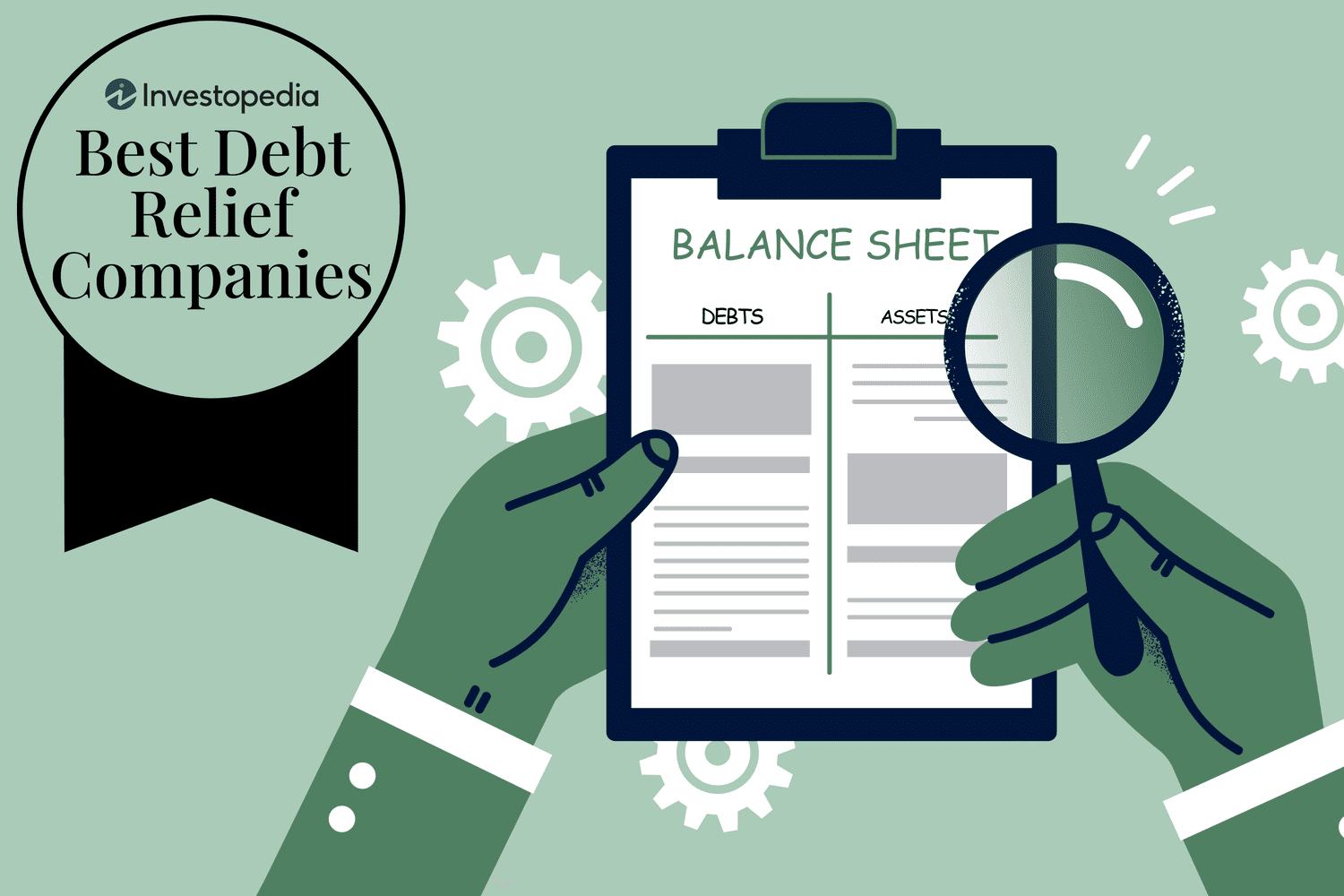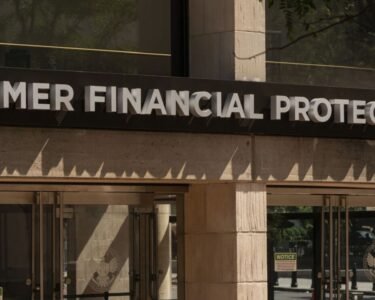| Debt Settlement | Debt Settlement Fee | Debt Management Plans | DMP Enrollment Fee | DMP Monthly Fee | |
|---|---|---|---|---|---|
| National Debt Relief Best Overall for Debt Settlement/Low Fees/Credit Card Debt |
Yes | 15%–25% of settled debt | No | N/A | N/A |
| Apprisen Best Overall for Credit Counseling |
No | N/A | Yes | $0–$45 | $0–$45 |
| Money Management International Best for Small Debts |
Yes | Not disclosed | Yes | $0–$75 | $0–$59 |
| CuraDebt Best for Tax Debt Relief |
Yes | 15% to 25% of initial debt | No | N/A | N/A |
| Pacific Debt Relief Great for Low Fees |
Yes | 15% to 25% of settled debt | No | N/A | N/A |
| New Era Debt Solutions Best for Customer Satisfaction and Reputation |
Yes | 15% to 23% of initial debt | No | N/A | N/A |
| Freedom Debt Relief Great for Customer Satisfaction and Reputation |
Yes | 15% to 25% of initial debt | No | N/A | N/A |
| Accredited Debt Relief Best for Customer Service |
Yes | 25% of settled debt | No | N/A | N/A |
Debt relief companies generally can’t help you with student loans, but there are other options for student loan debt relief. Federal student loan borrowers can choose from various financial aid options. Private student loan borrowers can approach their loan servicer for help. If that doesn’t work, you can try refinancing with a new lender or contacting a debt attorney for assistance.
What Is Debt Relief?
Debt relief is a process by which a third-party company negotiates with your creditors to lower the total amount owed for those who have accumulated so much debt that they can no longer stay on top of their payments. In exchange for this service, debt relief companies typically charge consumers a fee based on a percentage of the amount settled.
How Debt Settlement Works
Debt relief companies usually work to resolve debts through a process called debt settlement, which involves negotiating with creditors to reduce the amount of debt owed, often by 40% to 60% of the outstanding balance.
In the debt settlement process, clients are asked to set aside a specific amount of money each month in a dedicated savings account. The goal is to save up enough money to negotiate a lump sum settlement with creditors. To build up savings and gain negotiating power, clients are also advised to pause regular payments and instead direct funds to the savings account.
While the potential savings are attractive, debt settlement comes with risks. Your credit score may be damaged once you stop paying your bills, as late payment behavior and delinquency will show up on your credit report. On top of that, creditors aren’t required to agree to a settlement, so there’s no guarantee the negotiations will be successful.
Pros & Cons of Debt Settlement
-
You may get out of debt sooner
-
You may avoid bankruptcy
-
Your credit score may be hurt
-
Your success isn’t guaranteed
-
You may not stick with the plan
-
You may may owe additional taxes
Alternatives to Debt Relief Programs
As you seek debt relief options, also consider other programs and strategies that may be better suited for your goals:
- Nonprofit credit counseling services: Credit counselors can review your financial situation, help you create a budget, and design a personalized money management plan for paying off your debt. Fees for many of these services are modest, or even free. The National Foundation for Credit Counseling (NFCC) is a great place to start to learn about options for those who are struggling with consumer debt.
- Debt management plan: Credit counselors work with your creditors to create a payment plan and schedule with a lower monthly payment using a debt management plan. If approved, you’ll make one monthly payment to the credit counseling agency until your debt is paid off. You’ll have to stop using any credit cards, but your accounts remain in good standing. These plans usually come with a fee.
- Debt consolidation: Debt consolidation involves combining multiple debts into one using a personal loan or credit card balance transfer. This can simplify the repayment process for unsecured debts like credit card bills or medical bills and save money in the long run if your consolidation loan or balance transfer credit card has a lower interest rate than your other debts. Debt consolidation also has the advantage of not affecting your credit score if you make timely payments on your new debt obligation with reduced interest rates to the credit card company or debt consolidation lender.
Debt Relief vs. Bankruptcy
Debt relief is a very different process than Chapter 7 bankruptcy or Chapter 13 bankruptcy. Declaring bankruptcy involves a debtor who is unable to repay their debts petitioning the court to seek temporary protection from creditors for their unsecured debts and is intended to result in an equitable settlement of the debtor’s obligations, typically for significantly less than was originally owed. Secured debts, like mortgage or car loans, are not discharged through bankruptcy but rather involve the borrower forfeiting the loan collateral if they are unable to make payments. Debt relief is a process by which the terms of existing debts are renegotiated by a third party for a fee to lower the cost, either in reduced interest or cancellation of part of the principal, of carrying debt.
While debt relief can negatively impact credit, bankruptcy significantly impairs both credit scores and can block access to further credit for quite a period of time as it is reported for seven years to the credit bureaus.
Debt Settlement vs. Debt Consolidation
Debt settlement is often confused with debt consolidation but the two terms are very different. Debt settlement entails negotiation between the borrower, either directly or through an agent acting on the borrower’s behalf, and the lender(s) to get the lender to accept something less than the total amount owed by the borrower. Debt consolidation is a loan made by a new lender to pay off existing consumer debts, thereby consolidating the previous debts into a single, lower-interest loan that must be repaid by the borrower.
Who Should Consider Debt Relief?
Debt relief should be considered if you:
- Have more debt payments than you can service (i.e. at least make minimum payments)
- Are willing to have your credit score significantly decreased by the debt settlement process
- Do not wish to consider declaring bankruptcy
Debt settlement services can be relatively expensive and negatively affect your credit, so it is not advisable to pursue them without first contacting your creditors to see if there are other options for debt restructuring or more favorable repayment plan terms to pay your creditors available.
Is Debt Relief Right For You?
The decision to pursue debt relief is a very personal one and should not be considered lightly. That’s because it can have long-term effects on your credit score and may not completely free you from the obligation of eventually repaying all the principal, interest, and fees that you owe on your debts.
While debt relief can provide an initial settlement with creditors, those lenders often charge off the portion of the debt not collected to debt collection agencies. However, debt settlement can offer many people a path to getting out of debt that they might not have without the help of a debt relief company’s ability to negotiate with creditors on their behalf.
How to Choose a Debt Relief Company
Before you hire a debt relief company, make sure you understand the fees and interest that would be charged, the services offered, and the firm’s reputation.
- Debt settlement generally costs 15% to 25% of the amount of the debt owed.
- Look for reputable and trustworthy companies that are accredited by the American Fair Credit Council (AFCC) or the International Association of Professional Debt Arbitrators (IAPDA).
- It can also be a good idea to contact your state attorney general’s office to see if there are any recent or outstanding complaints about any companies you are considering.
Any company you consider should be transparent about its pricing and its process, have strong customer satisfaction scores, and be free of regulatory actions.
Sana Siddiqui, Investopedia Research Analyst
“Customers should be vigilant about having their debt relief questions answered without giving out personal information because some of these companies are eager to put you in their database and ‘close’ you on a settlement plan instead of reviewing costs and terms upfront. Information like fees, cancellation policies, and eligible debt should be discussed before providing any personal information to a company so you can first decide if they are an affordable option before proceeding.” —Sana Siddiqui, Investopedia Research Analyst
How to Apply for Debt Relief
To apply for a debt settlement program you need to:
1. Research companies that can settle your type of debt.
- Not all debt relief companies can settle certain types of debt like debt from payday loans, student loans, or medical debt. However, most can work with common types of consumer debt like high-interest credit card debt.
- Compare fees charged between companies—most charge a flat percentage of the outstanding debt being settled.
2. Make sure you meet any debt-level requirements.
- Some companies require that you have a certain level of debt before they will work with you.
3. Contact the company that best suits your needs.
- Provide creditor information, including lender names, account numbers, loan payment amounts, total loan amounts owed, and interest rates charged
- Provide personal information like proof of employment (pay stub, 1099, or W2), Social Security number, and annual income
- Sign a contract authorizing the company to negotiate with your creditors and agree on the fee charged for the services provided by the company.
It is best to thoroughly research your options, both online and by speaking to friends and family, before deciding on a debt settlement company to ensure the one you choose has a solid reputation, isn’t under sanction by any regulatory authorities, and has good customer experience reviews. Reputability, trustworthiness, and transparency are critical factors that should be considered before selecting a company to help settle your debt.
Risks of Dealing With a Debt Relief Company
Choosing to work with a debt relief company to settle your debt does come with risks. If you decide to proceed with debt relief, be aware that you could face the following:
- Lenders who choose not to settle your debts
- A significant drop in your credit score
- Adverse information on your credit report for up to seven years
- Unpaid debt, though settled with the original lender, may be subject to sale to debt collectors
- High fees—some debt relief companies charge up to 25% of the total balances settled; this can vary by state.
- Tax liability—any debts over $600 that are settled or forgiven can be subject to federal income tax
How to Spot a Debt Relief Scam
Below are some red flags to be aware of to avoid getting scammed by a disreputable debt relief company:
- Demand for payment upfront, before it settles your debt
- A guarantee that they can settle all of your debt and make you debt-free
- An unusually high number of consumer complaints
- No TrustPilot rating or a very poor rating
- A record of sanctions and penalties levied by government regulatory agencies
- An insecure website application page without HTTPS security protocol
Frequently Asked Questions
-
National Debt Relief is Investopedia’s pick for the best overall debt relief company in the country in February 2024. We evaluated the leading debt companies across 19 different criteria in four areas: reputation and stability, customer experience, services, and costs and fees. National Debt Relief achieved the best overall score compared to other companies we evaluated.
-
Debt settlement companies, like the ones we profiled above, can offer you help with negotiating with creditors to provide relief from accumulated high-interest debt from private student loans, credit cards, buy-now-pay-later agreements, and other forms of personal loan obligations. Alternatives to using debt settlement companies for debt relief can include working with a nonprofit debt counseling service or taking advantage of a debt consolidation loan. Using a new creditor to pay off your debt may seem risky but the lower interest rate potentially available can help you pay down balances faster.
-
Debt settlement can take a considerable amount of time, up to three to four years to complete, starting from the time you stop making regular payments to your creditors and until you ultimately pay off the discounted amounts negotiated by a debt relief company.
-
One major downside of debt settlement programs is the fact that your credit score can take a significant hit once you stop making payments. This makes sense since your payment history is the most important factor used to determine your FICO credit score. When you stop making payments on personal loans, that behavior gets reported to credit bureaus, or in the case of small business owners it can get reported to a business bureau.
Damage to your credit score isn’t all you have to worry about. Stopping payments while you save money for debt settlement also can lead to late fees and penalties that can cause your balances to go up even more. You also may get debt collection calls from creditors or debt collectors during your program, and you even could potentially face a debt collection lawsuit.
-
For someone with $10,000 in credit card debt, a simple option for paying off the debt more quickly is to seek a 0% balance transfer offer from another card issuer. If the new account offers a credit limit high enough to transfer the entire $10,000, then the borrower can begin paying down the principal directly rather than paying interest each month. Some balance transfer offers involve a balance transfer fee, however, so it can pay to shop around. Another option for this level of credit card debt relief is to apply for a personal debt consolidation loan at a lower interest rate and then pay that loan down over time. If neither of those options is available, then working with a debt relief company to settle the debt may prove to be the best path to providing sufficient relief leading to loan repayment for a negotiated amount that is less than originally owed.
-
Consumer debt that is settled for less than was originally owed can stay on your credit report for up to seven years. The negative impact on credit scores can recover before that time with responsible credit behavior but debt settlement information for amounts payed under terms of less than paid as agreed under the original account agreements will likely remain.
-
Debt relief companies typically charge their customers a percentage of the amount of debt that they are able to settle with creditors, generally within a range of 15% to 25%. So, to settle $10,000 of debt could cost between $1,500 and $2,500.
-
Settling debt with creditors can certainly hurt your credit since debt relief entails a company negotiating on your behalf with lenders to accept significantly less than you owe. Credit repair companies can potentially help improve your credit scores by engaging with credit reporting agencies and creditors to have any inaccurate information removed from your credit reports. While the negative credit impact of debt settlement won’t be affected by cleaning up your credit files, the removal of inaccurate or incomplete information can certainly help.
-
We researched and reviewed 40 companies to find the best debt relief companies you see above on this list. While we write individual reviews for most companies, we do not always write reviews for companies we would not recommend. Below are the companies we researched along with links to individual company reviews to help you learn more before making a decision:
A Debt Coach Credit Counseling, Accredited Debt Relief, American Consumer Credit Counseling, American Debt Relief, Americor Financial, Apprisen, Atlas Debt Relief, Cambridge Credit Counseling, Century Support Services, Christian Credit Counselors, Citizens Debt Relief, ClearOne Advantage, Community Tax, Consolidated Credit, Consumer Education Services, Countrywide Debt Relief, Credit.org, CreditAssociates, CuraDebt, Debt Reduction Services, DebtBlue, DebtWave, DMB Financial, Family Credit Managment, Fast Track Debt Relief, First Choice Debt Relief, Freedom Debt Relief, GreenPath, Greenwise Debt Relief, GRT Financial, InCharge Debt Solutions, JG Wentworth, Liberty Debt Relief, Money Management International, National Debt Relief, New Era Debt Solutions, Pacific Debt Relief, Progressive Debt Relief, Rescue One Financial, Trinity Debt Management.
Why You Should Trust Us
Investopedia launched in 1999 and has been helping readers find the best debt relief companies since June 2020. We collected over 2,000 data points on the debt relief companies we reviewed and based our assessments on numerous factors, including services, costs and fees, availability, reputation and stability, customer experience.
The Investopedia reviews team discusses the rubric for recommending debt relief and credit counseling companies.
Investopedia / Alice Morgan
How We Chose the Best Debt Relief Companies
To determine the best debt relief companies, we reviewed various databases, competitive analyses, consumer behavior, and more, ultimately narrowing down the list to 40 companies that offered debt settlement and/or credit counseling services. We developed a quantitative model in which we identified 53 important criteria across five categories.
We weighted each category as follows to rate debt settlement services for this article:
- Costs and fees: 41.00%
- Availability: 22.50%
- Reputation and stability: 19.00%
- Customer experience: 9.50%
- Services: 8.00%
We weighted each category as follows to rate credit counseling services for this article:
- Costs and fees: 37.00%
- Availability: 19.50%
- Reputation and stability: 18.50%
- Customer experience: 9.00%
- Services: 16.00%
We then gathered data for the 53 criteria directly from companies via websites, media contacts, and existing partnerships. Data was collected between Oct. 19, 2023, and Dec. 18, 2023. This resulted in over 2,000 data points in our rubric, which we used to score and determine the best debt relief companies (including debt settlement and credit counseling services) for people looking to manage and get out of debt.
To learn more about our process for finding the best debt relief companies, read our full methodology.
Learn More About Debt Relief




